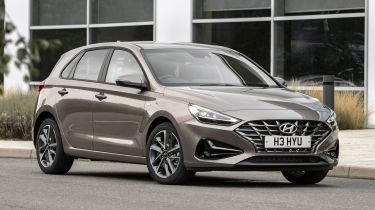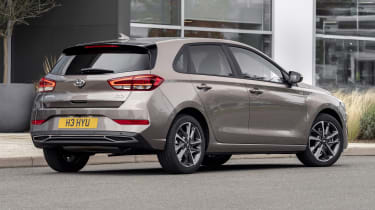Hyundai i30 review - MPG, CO2 and running costs
There’s no dedicated i30 eco model, but all versions should return decent fuel economy

All Hyundai i30 models return reasonable fuel economy, although the diesel, which offered around 60mpg combined, has been discontinued. Next best is the 118bhp 1.0-litre turbo petrol. It’s our pick of the range, feeling sprightly enough and agile, while also returning a decent 52mpg and emitting 121g/km of CO2.
Next best is the 118bhp 1.0-litre turbo petrol. It’s our pick of the range, feeling sprightly enough and agile, while also returning a decent 52mpg and emitting 121g/km of CO2. The diesel engine will cost more than the petrol if you’re a company-car driver, due to a higher rate of BiK tax.
The 1.5-litre turbo petrol is the least economical of the standard i30 models, emitting 143g/km of CO2 while returning 44.8mpg.
All cars come with Hyundai’s stop-start technology, which shuts off the engine in traffic. The Korean brand has also introduced mild-hybrid assistance to the petrol engines, which stores energy in a small battery to ever-so-slightly boost fuel efficiency. If you want a full hybrid or electric Hyundai, you'll need to look towards the excellent Ioniq family car or Kona SUV.
Insurance groups
The extensive list of safety kit should keep insurance prices low, while relatively modest engine outputs will ensure younger drivers can afford to run an i30 without too much trouble. Hyundai i30 insurance groups start at group 10 for an SE Connect with the petrol engine. Other spec and engine combinations sit in groups 11-16. If you want an i30N Performance model, you'll need to prepare yourself for a bigger premium as it sits in group 28.
Depreciation
The i30 will retain around 45% of its value over 3 years and 36,000 miles. The 1.0-litre T-GDI models fare a little better overall, as does the 2.0-litre N Performance version.









